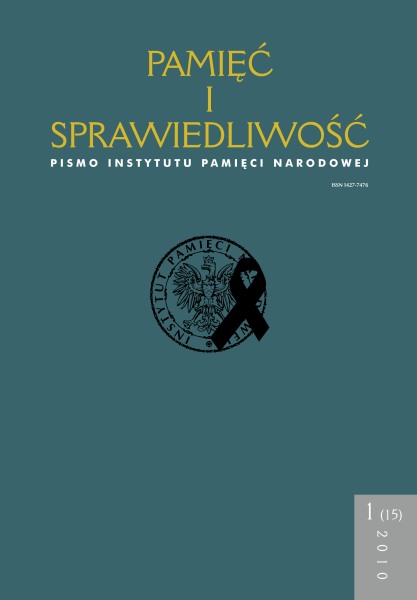Tło amerykańskiego antykomunizmu
Pamięć i Sprawiedliwość, Tom 15 Nr 1 (2010), strony: 37-55
Data publikacji: 2010-06-30
Abstrakt
Americans perceived communism in a hostile light from the time of its origins. Lenin’s withdrawal of Russian from World War I freed up German troops to fight in France against American forces just arriving, and many American perceived Bolshevism as linked to the German enemy. Further, traditional American support for a market economy, religious freedom mixed with an widespread religiosity, and emphasis on individual liberties clashed with Communist emphasis on collectivism, atheism, and proletarian dictatorship. American hostility to communism thereafter waxed and waned with the perceived seriousness of the Communist threat to American interests and institutions. After the fading of fears of world revolution, during most of the 1920s communism was regarded as an insignificant domestic nuisance while Soviet Russia was too far away and too weak to be of concern. During the 1930s the economic difficulties of the Great Depression caused a segment of Americans to view communism’s anti-capitalist stance in a more sympathetic light, and the anti-Fascist stance of the USSR also drew support although suspicious of communism remained predominate. Public
anticommunism flared up once more with the signing of the Nazi-Soviet Pact in August 1939 and the perception of fascism and communism as simply two varieties of totalitarianism. After American entered World War II, anticommunism subsided as a issue during the wartime alliance with the USSR. But with the Soviet Union’s emergence as America most potent foreign adversary in the Cold War and revelations that the American Communist Party has actively assisted Soviet espionage against the United States, anticommunism became a dominating public
sentiment. And with the outbreak of armed combat between American troops and Communist forces in Korea in 1950 popular and political anticommunism became extremely intense with communism regarded not merely as a treat to American national interests but as a challenge to the fundamental principles of
American democracy and individual liberties.
 Język Polski
Język Polski
 English
English
 Deutsch
Deutsch
 Français (France)
Français (France)
 Italiano
Italiano
 Русский
Русский


 PDF
PDF
